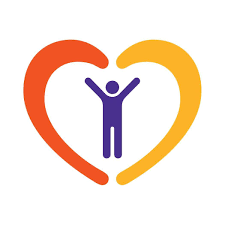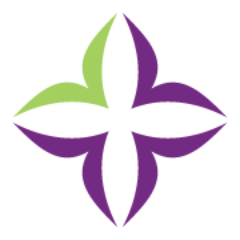Description
The Senior Director of Nursing is responsible for the daily operations of the Department of Nursing and all assigned clinical programs, which includes overall strategic planning for all clinical programs to ensure implementation of the mission, philosophy, patient care standards and nursing informatics to support nursing practice. S/he is accountable for budgetary planning and resources to enhance the quality of patient care.
The Senior Director of Nursing is responsible for facilitating the overall strategic plan for personnel and resource management, annual goals and objectives, and fiscal targets in collaboration with Nursing senior leadership.
Responsibilities
Patient Experience
1. Leads nursing practice using the tenets of the Professional Practice Model of Relationship Centered Care and the Care Delivery Model of Modified Primary Nursing for the promotion of the patient experience.
2. Demonstrates proficiency in all aspects of Purposeful Hourly Rounding (PHR) and role models expected behaviors.
3. Ensures the integration of PHR into clinical activities to enhance Relationship Centered Care.
4. Confirms and periodically observes daily patient rounding.
5. Validates Director of Nursing competency in PHR, and provides consistent meaningful feedback with more focused feedback as needed.
6. Synthesizes quantitative and qualitative feedback regarding the patient experience and staff engagement to Directors of Nursing, Associate Nursing Directors, Clinical Nurse Managers, Assistant Nurse Managers, Nursing Shift Managers and the Interdisciplinary Patient Care Team that leads to the development and implementation of an action plan.
7. Follows up on all patient concerns in a timely manner, provides service recovery as needed and escalates patient concerns as appropriate.
8. Demonstrates caring, respect, compassion, empathy and active listening through dialogue, body language and actions.
Quality and Safety
1. Designs, supports and leads a safe, therapeutic and efficient patient-centered care environment for professional practice.
2. Identifies and investigates issues or variances in practice/operations by participating in the RCA process and develops and implements corrective action plans.
3. Fosters a fair and open culture that encourages error and near-miss occurrence reporting.
4. Leads interdisciplinary quality improvement teams using the principles of high reliability.
5. Communicates with staff and leadership about unit progress, changes, and compliance with quality and safety metrics.
6. Responds to escalations of potential safety hazards or gaps from best practice by correcting concerns following institutional chain of command protocol.
7. Monitors institutional information technology infrastructure and corrects gaps in clinical nurse documentation.
8. Leads staff participation in quality and safety initiatives and mandated compliance measures.
9. Demonstrates accountability for all unit quality and safety practices and compliance, and insures required evaluation of staff competencies is maintained.
10. Reviews unit progress, changes and compliance with quality and safety metrics with Directors and Associate Directors.
11. Coaches and mentors Directors in the resolution of potential safety hazards and validation of compliance with hospital and departmental policies and procedures and regulatory agency standards.
12. Fosters a professional practice environment through the facilitation of collegial interdisciplinary relationships, peer review, nursing research, innovation and joint practice arrangement through affiliating universities.
Operations and Administration
1. Supports implementation of the mission, vision, goals and objectives of the department, throughout the clinical service and individual patient care units.
2. Provides administrative oversight to service lines, departments or groups of units to ensure that all activity (staffing, support services, inter disciplinary collaboration, resources and financial viability) supports the goals of the organization.
3. Works collaboratively with the Director of Nursing/Associate Director/ Clinical Nurse Manager/Assistant Nurse Manager/Nursing Shift Manager, physician dyads and all members of the healthcare team to develop a cohesive unit leadership group.
4. Maintains service line compliance with all regulatory agency mandates, including the regulations of NYS DOH and The Joint Commission.
5. Oversees nursing leadership and managers to ensure 24 hour patient care delivery, throughput, staffing and processes to insure efficient and effective operations.
6. Oversees the development and implementation of several unit or service line budgets, including capital equipment allocation, budget variances, management of OT and vacancies, according to MSHS financial goals.
7. Oversees control of positions and the recruitment and retention of qualified staff.
8. Maintains patient/employee confidentiality in the management of information.
9. Monitors availability and maintenance of nursing equipment and supplies.
10. Evaluates Director/Associate Director of Nursing performance. Mentors, coaches, counsels and disciplines staff as needed.
11. Conducts leadership staff meetings with Directors to ensure communication about progress, changes and compliance with all hospital policies and procedures and regulatory agency standards.
12. Encourages, recognizes and rewards manager and staff participation in quality and safety initiatives, compliance and successes.
13. Facilitates organizational change initiatives by using effective strategies.
14. Leads a shared decision-making model by establishing a structure of shared governance, just culture and staff engagement in practice councils, departmental meetings and initiatives.
15. Interprets and implements collective bargaining agreements affecting staff while enforcing compliance of union contracts.
16. Serves as chairperson/member in hospital wide committees to represent nursing.
17. Serves in the position of Administrator on Call (AOC) as assigned.
Professional Development
1. Evaluates and directs the environment of care to support clinical colleagues, patients and their families and members of the health care team.
2. Advances clinical competence in nursing practice and leadership to progress from competent to expert.
3. Develops and leads an environment that cultivates a professional image of nursing to colleagues, communication standards include styles and methods that demonstrate caring, respect, empathy and trust.
4. Recommends and supports standards that ensure that ethical principles are incorporated into decision making for patient and family in collaboration with the clinical nursing staff and the health care team.
5. Encourages and facilitates a spirit of scholarship, inquiry, life-long learning and innovation for self and others.
6. Oversees and supports staff in shared decision making through facilitating specialty practice councils, and as a chairperson/ member of nursing department committees, and unit initiatives.
7. Acquires and disseminates knowledge and skills relative to the role, patient population, clinical specialty and global or local health community needs
8. Serves as a professional role model and preceptor for new leadership, staff and students.
9. Establishes and implements a system that supports best practice patient care decisions, safe and efficient patient throughput and access to resources for the unit/clinical service area.
10. Incorporates the values of research and evidenced based practice and its application to the environment of care.
11. Contributes to the profession of nursing through leadership and participation in professional organizations.
Qualifications
Education Requirements
- Bachelor of Science with a major in nursing and Master's degree in nursing or health-related specialty required; doctorate strongly preferred.
- Experience Requirements
- 7-10 years of demonstrated clinical and administrative expertise in the area of nursing practice assigned.
- Licensing and Certification Requirements (if applicable)
- Licensed as a registered nurse with current registration in New York State.
- Professional Board Certification in leadership and/or clinical specialty is preferred.
Compensation Statement
The Mount Sinai Health System (MSHS) provides a salary range to comply with the New York City Law on Salary Transparency in Job Advertisements. The salary range for this role is $153,723.00 - $230,584.00 Annually. Actual salaries depend on a variety of factors, including experience, education, and hospital needs. The salary range or contractual rate listed does not include bonuses/incentives, differential pay, or other forms of compensation or benefits.
Non-Bargaining Unit, 700 - Nursing Operations Management - MSH, Mount Sinai Hospital
Employer Description
Strength Through Diversity
The Mount Sinai Health System believes that diversity, equity, and inclusion are key drivers for excellence. We share a common devotion to delivering exceptional patient care. When you join us, you become a part of Mount Sinai’s unrivaled record of achievement, education, and advancement as we revolutionize medicine together. We invite you to participate actively as a part of the Mount Sinai Health System team by:
- Using a lens of equity in all aspects of patient care delivery, education, and research to promote policies and practices to allow opportunities for all to thrive and reach their potential.
- Serving as a role model confronting racist, sexist, or other inappropriate actions by speaking up, challenging exclusionary organizational practices, and standing side-by-side in support of colleagues who experience discrimination.
- Inspiring and fostering an environment of anti-racist behaviors among and between departments and co-workers.
We work hard to acquire and retain the best people and to create an inclusive, welcoming and nurturing work environment where all feel they are valued, belong and are able to professional advance. We share the belief that all employees, regardless of job title or expertise contribute to the patient experience and quality of patient care.
Explore more about this opportunity and how you can help us write a new chapter in our history!
“About the Mount Sinai Health System:
Mount Sinai Health System is one of the largest academic medical systems in the New York metro area, with more than 43,000 employees working across eight hospitals, more than 400 outpatient practices, more than 300 labs, a school of nursing, and a leading school of medicine and graduate education. Mount Sinai advances health for all people, everywhere, by taking on the most complex health care challenges of our time — discovering and applying new scientific learning and knowledge; developing safer, more effective treatments; educating the next generation of medical leaders and innovators; and supporting local communities by delivering high-quality care to all who need it. Through the integration of its hospitals, labs, and schools, Mount Sinai offers comprehensive health care solutions from birth through geriatrics, leveraging innovative approaches such as artificial intelligence and informatics while keeping patients’ medical and emotional needs at the center of all treatment. The Health System includes approximately 7,400 primary and specialty care physicians; 13 joint-venture outpatient surgery centers throughout the five boroughs of New York City, Westchester, Long Island, and Florida; and more than 30 affiliated community health centers. We are consistently ranked by U.S. News & World Report's Best Hospitals, receiving high "Honor Roll" status, and are highly ranked: No. 1 in Geriatrics and top 20 in Cardiology/Heart Surgery, Diabetes/Endocrinology, Gastroenterology/GI Surgery, Neurology/Neurosurgery, Orthopedics, Pulmonology/Lung Surgery, Rehabilitation, and Urology. New York Eye and Ear Infirmary of Mount Sinai is ranked No. 12 in Ophthalmology. U.S. News & World Report’s “Best Children’s Hospitals” ranks Mount Sinai Kravis Children's Hospital among the country’s best in several pediatric specialties. The Icahn School of Medicine at Mount Sinai is ranked No. 14 nationwide in National Institutes of Health funding and in the 99th percentile in research dollars per investigator according to the Association of American Medical Colleges. Newsweek’s “The World’s Best Smart Hospitals” ranks The Mount Sinai Hospital as No. 1 in New York and in the top five globally, and Mount Sinai Morningside in the top 20 globally.
The Mount Sinai Health System is an equal opportunity employer. We comply with applicable Federal civil rights laws and does not discriminate, exclude, or treat people differently on the basis of race, color, national origin, age, religion, disability, sex, sexual orientation, gender identity, or gender expression. We are passionately committed to addressing racism and its effects on our faculty, staff, students, trainees, patients, visitors, and the communities we serve. Our goal is for Mount Sinai to become an anti-racist health care and learning institution that intentionally addresses structural racism.”
EOE Minorities/Women/Disabled/Veterans
Compensation
The Mount Sinai Health System (MSHS) provides a salary range to comply with the New York City Law on Salary Transparency in Job Advertisements. The salary range for the role is $153723 - $230584 Annually. Actual salaries depend on a variety of factors, including experience, education, and hospital need. The salary range or contractual rate listed does not include bonuses/incentive, differential pay or other forms of compensation or benefits.









